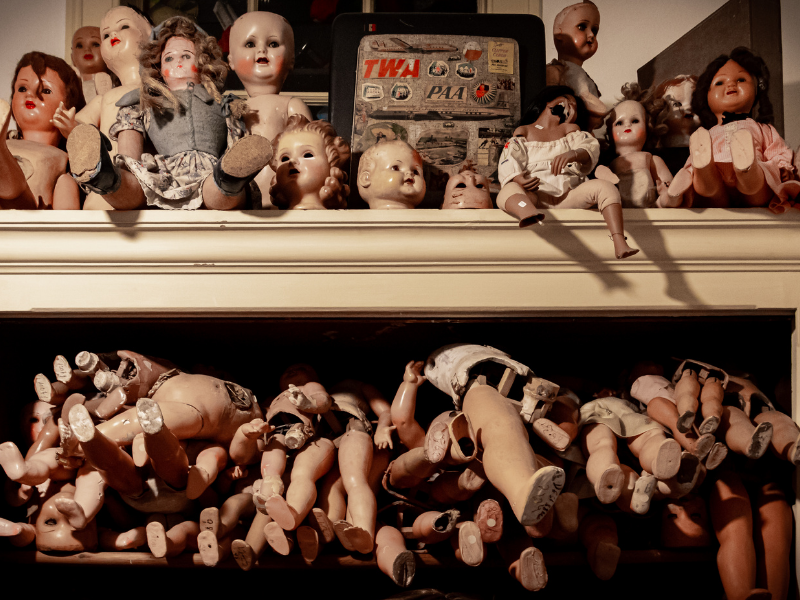Some phobias never cease to amaze us because of how curious their process is and many seem to us to be simple manias. It should be clear that the phobia is not a rejection or dislike that you feel towards something, but that it is a true panic. That is why we ask ourselves, can you be afraid of a doll? In our dictionary of phobias we talk about pupaphobia or the fear of puppets and articulated dolls .
Can you be afraid of a doll?
Pupaphobia is the fear of puppets , marionettes, or articulated dolls. It is precisely that intention of the doll’s automatism, of the appearance of coming to life that produces fear. After all, dolls are not people and shouldn’t have the ability to move, right?
People who suffer from pupaphobia see a great danger in these dolls or puppets that can move and from which they can hear their voices. It has its logic because it is a break with the natural. A puppet cannot speak and in this case it seems that he is. That it is a simulation matters very little when developing this phobia.
Symptoms of pupaphobia
The fear is that the doll will come to life and cause you some harm. Pupaphobia is more common in children , but it can reach adulthood intact if it is not treated. And, like all phobias, the physical symptoms go through dizziness, a feeling of unreality, palpitations, headache, nausea or a panic attack.
More complicated are the psychic symptoms of pupaphobia where the person who suffers from it is very aware that their fear is irrational and excessive, their thoughts distorted and their need to avoid these puppets, dolls or marionettes. And that causes a feeling of helplessness that usually ends with self-esteem problems.
The causes of pupaphobia
If we find it difficult to imagine an adult with this phobia , it does not seem so strange to us to imagine a child traumatized by a puppet or marionette show. Depending on the situation, depending on the context, it may even be common to experience a certain rejection of this type of dolls.
Although the background of puppets is to cheer up and not complicate people’s lives, pupaphobia is better understood when we remember coulrophobia or fear of clowns. Something that in principle is friendly becomes dangerous when there is a previous anxiety disorder that multiplies fear with the most unsuspected stimuli.
Overcome the fear of puppets
It is tempting to think that pupaphobia is not a major phobia because it is relatively easy to avoid the situation that produces fear. But phobias that are not treated often lead to more phobias, so it is best to ask for psychological help. If the phobia is detected in childhood, it is even more important to see a professional as soon as possible.
We cannot condemn a child to suffer from a phobic disorder for life that will lead him to feel irrational fears in the most everyday situations. To overcome a phobia, both in childhood and in adulthood, cognitive behavioral therapy is the most effective, but it will always be accompanied by relaxation techniques to reduce anxiety.




